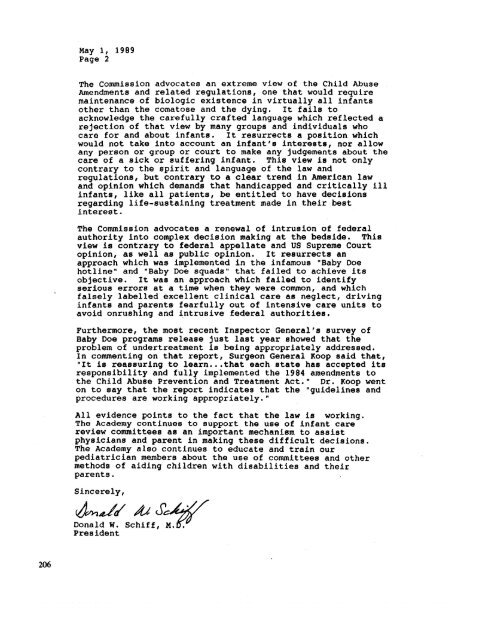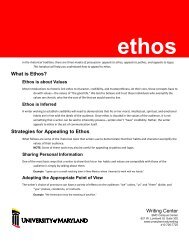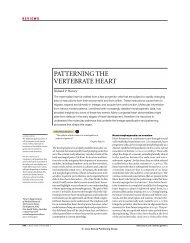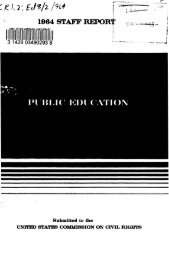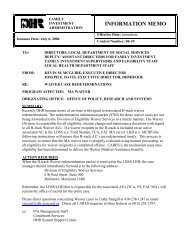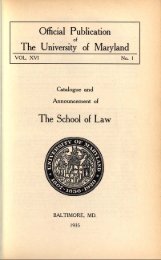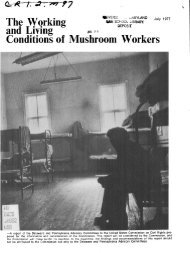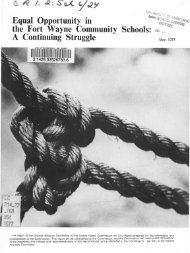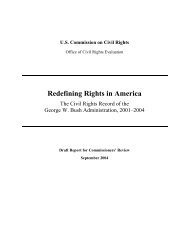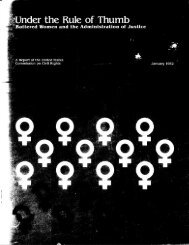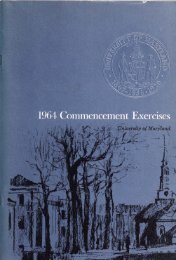PDF1 - University of Maryland School of Law
PDF1 - University of Maryland School of Law
PDF1 - University of Maryland School of Law
Create successful ePaper yourself
Turn your PDF publications into a flip-book with our unique Google optimized e-Paper software.
May 1, 1989Page 2The Commission advocates an extreme view <strong>of</strong> the Child AbuseAmendments and related regulations, one that would requiremaintenance <strong>of</strong> biologic existence in virtually all infantsother than the comatose and the dying. It fails toacknowledge the carefully crafted language which reflected arejection <strong>of</strong> that view by many groups and individuals whocare for and about infants. It resurrects a position whichwould not take into account an infant's interests, nor allowany person or group or court to make any judgements about thecare <strong>of</strong> a sick or suffering infant. This view is not onlycontrary to the spirit and language <strong>of</strong> the law andregulations, but contrary to a clear trend in American lawand opinion which demands that handicapped and critically illinfants, like all patients, be entitled to have decisionsregarding life-sustaining treatment made in their bestinterest.The Commission advocates a renewal <strong>of</strong> intrusion <strong>of</strong> federalauthority into complex decision making at the bedside. Thisview is contrary to federal appellate and US Supreme Courtopinion, as well as public opinion. It resurrects anapproach which was implemented in the infamous "Baby Doehotline" and "Baby Doe squads" that failed to achieve itsobjective. It was an approach which failed to identifyserious errors at a time when they were common, and whichfalsely labelled excellent clinical care as neglect, drivinginfants and parents fearfully out <strong>of</strong> intensive care units toavoid onrushing and intrusive federal authorities.Furthermore, the most recent Inspector General's survey <strong>of</strong>Baby Doe programs release just last year showed that theproblem <strong>of</strong> undertreatment is being appropriately addressed.In commenting on that report, Surgeon General Koop said that,"It is reassuring to learn...that each state has accepted itsresponsibility and fully implemented the 1984 amendments tothe Child Abuse Prevention and Treatment Act." Dr. Koop wenton to say that the report indicates that the "guidelines andprocedures are working appropriately."All evidence points to the fact that the law is working.The Academy continues to support the use <strong>of</strong> infant carereview committees as an important mechanism to assistphysicians and parent in making these difficult decisions.The Academy also continues to educate and train ourpediatrician members about the use <strong>of</strong> committees and othermethods <strong>of</strong> aiding children with disabilities and theirparents.Sincerely,Donald W. Schiff,President206


